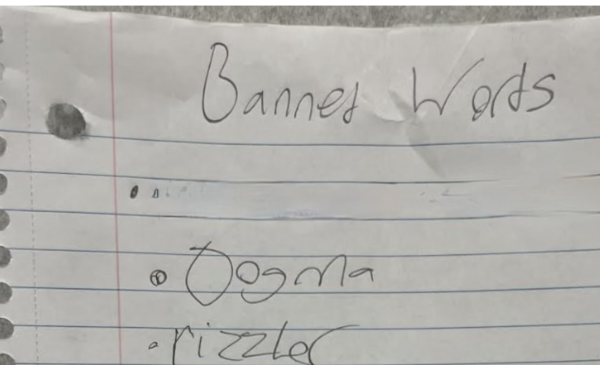 Brianrot has permeated the vernacular of the student body. Many adults and teachers are baffled by the language used by the younger generations.
Brianrot has permeated the vernacular of the student body. Many adults and teachers are baffled by the language used by the younger generations.
Words such as “skibbidi”, “rizz” and “sigma” are commonly used in everyday conversation between students.
Brain Rot is usually used as a term for the type of low effort content that younger audiences enjoy. When an individual spends a lot of time scrolling they can be described as “rotting.” Despite appearing nonsensical at first glance many of the terms that are classified as brain have real meanings and follow rules that are consistent with normal English. If you are unfamiliar with them it may sound like nonsense but it has become a significant part of young people’s vocabulary.
Brain rot has metastasized to schools world wide fueled by the influence of social media applications such as TikTok and Instagram. Like other schools, Ipswich High School has fallen into the wave of brain rot.
Mr. Caulfield, despite not understanding much of the vocabulary, shared some insightful thoughts on brain rot based on psychological patterns. He said, “[Slang] is a reflection of culture which is influenced by your peers.” He explained that the growth of new slang is largely due to the “spotlight effect.” The spotlight effect is the feeling that everyone else is looking at you which is intensified when you feel left out. This effect is especially strong when it comes to teenagers. Thus, when new slang is introduced it is like a race to who can understand it the fastest. Mr Caulfield said “brain rot shows you are in the know,” which in turn, reduces the symptoms of the spotlight effect.
This phenomenon is not exclusive to our generation. When asked if there was equivalent slang when he was younger Mr. Caulfield said that they used the word “P H phat” to say that something was cool or “that was dirty” to applaud someone for doing something impressive. When asked the same question Mr. Kreiger told a story about a time where he used the phrase, “drop a dime” when teaching a Forensics class. Only for students to be completely confused.f
When asked how often he hears these words, Mr. Kreiger responded by saying “every day”. Mr. Kreiger doesn’t have a full understanding of this vocabulary, but he is slowly starting to pick up on the meaning of this slang. He thinks this is good for the younger generation to have lingo that we all can relate to further connect with our peers through conversation that we all understand. As long as the words do not have negative connotations and are school-appropriate he sees no problem with being used in the environment of the classroom.
Understanding slang is important to bridge the gap between generations. Adults may feel alienated when they can’t comprehend the language of the youth. If you are a parent reading this we hope it heightens your respect for your child’s vernacular and if you are an adolescent I encourage you to share more of your culture with the adults in your life.
Glossary:
| Term | Definition |
| Brain Rot | When someone has a crippling addiction to low effort content |
| Rizz | short for charisma. |
| Sigma | Top of the food chain, above alpha. |
| Skibbidy Toilet | A head coming out of a toilet. |
| Aura | Social status- refers to how noticeable someone’s presence is. |
| Mogging | When you outperform someone else. |
| Mewing | A technique attributed to a British orthodontist named Mike Mew which involves putting pressure on the roof of your mouth with your tongue to try and change the shape of your face by moving your maxilla up and forwards with the lateral pressure of your tongue. This fits into the broader looks max approach to self-modification in the name of love and romance. |
| Crashing out | losing your beans, acting on anger |
Sources: urbandictionary.com, https://www.statesmanshs.org/8277/opinions/the-evolution-of-brainrot/


